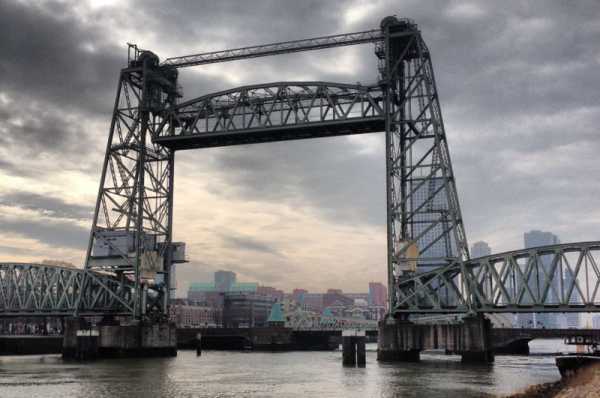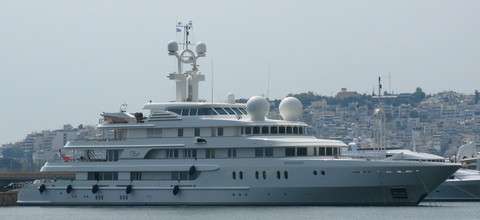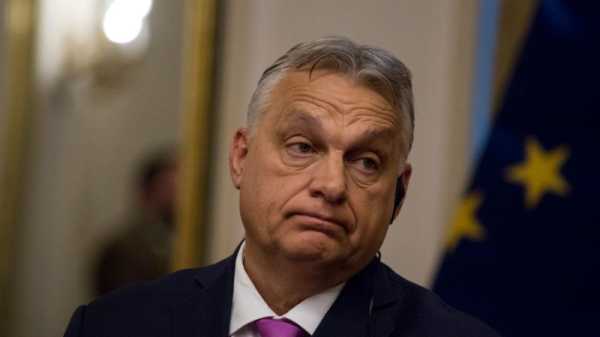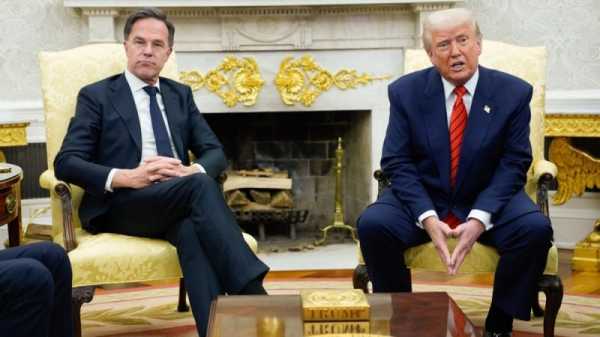
Rotterdam's Koningshaven Bridge. If Jeff Bezos is hellbent on having a superyacht, at least he should at least pay for its carbon emissions (Photo: Wikimedia)
Last week we found out that Jeff Bezos, chairman of Amazon and the richest person in the world, is building a superyacht in Rotterdam. So far, so good. The rich have long enjoyed spending their money on vast recreational vessels and it is no surprise that Bezos is joining that party.
However, the news struck a chord when we found out that the new €430m vessel may lead to the partial dismantling of Rotterdam’s Koningshaven Bridge. For the people of Rotterdam it is like taking down London’s iconic Tower Bridge, or San Francisco’s Golden Gate Bridge.
-

A billionaire's superyacht similar to Bezos's (Photo: Tilemahos Efthimiadis)
The story was covered around the globe, confirming public anxieties and anger over the seeming willingness of governments and regulators to bend the rules for the super-rich.
But the Koningshaven Bridge is not the only place where Bezos’ superyacht will enjoy an exemption from the rules that apply to others.
The EU is drawing up one of the most ambitious climate plans in the world, to reduce emissions across all sectors, and leave the bloc’s emissions 55-percent lower by 2030.
This plan includes shipping.
In July 2021, the European Commission proposed a set of measures to get shipping companies to pay for their pollution by including the sector in the EU’s Emission Trading System (ETS) and by gradually transitioning ships over to clean fuels under the FuelEU Maritime rules.
You’ll have guessed where this is going – superyachts, including the one at the centre of Bezos bridge controversy, are to be exempt from any such rules, as the draft regulation stands, and can keep burning as much fossil fuels as they like.
It’s a loophole big enough to sail Bezos’s Superyacht through.
This is problematic in its own right – a Transport&Enviornment study published in January found that yachts are responsible for 1.1 million tonnes of CO2 emissions in Europe alone.
But there’s a much bigger problem also – the European Green Deal requires public support to succeed, across myriad changes from how we heat our homes, to how we get around. This public support is based on a social contract – that we’re all in this together.
Exempting billionaires from climate regulations undermines this contract, and is politically stupid. It not only strengthens the hand of far-fight and climate-science-denying groups who can point to EU “hypocrisy”, it also undermines support for climate policies from the centre ground.
Why private jets but not superyachts?
The anger over the Bezos bridge affair should therefore remind us how essential it is for the EU to ensure the Green Deal is socially just, and includes everyone. EU policy-makers should close the superyacht loophole in their climate proposals for shipping, and instead put these vessels at the very forefront of transitioning from fossil fuels to zero-emission technologies.
Thankfully, the EU is not making the same mistake in aviation – private jets are included in the draft carbon pricing plan. This makes obvious sense, because owners of private jets and yachts are typically among the wealthiest in society, and can afford to pay for the upgrade to zero-carbon propulsion, hopefully then making these technologies cheaper for the mass market.
Yachts aside, taxing the fossil fuel use of the global shipping industry itself is also a social-equity issue.
Renowned for its high speed and low price, Amazon has built up a huge global empire and with it, a huge climate impact. In 2020 alone, the company’s own estimates put its carbon emissions at 60m tonnes of CO2 – more than developed industrial countries like Ireland.
Part of the reason why Amazon can ensure such small transportation costs is that international shipping has long been exempt from any significant tax regimes. In 2019, European shipping’s tax break was estimated at €24bn a year in subsidies to maritime sector in the form of fossil-fuel tax exemptions under the European Energy Tax Directive (ETD) and national tax legislation – and the sector has even managed to exclude itself from the global agreement on minimum corporate tax.
These tax breaks for cheap shipping that go to the bottom lines of global corporations like Amazon, must be paid for by the taxes of the general public.
Meanwhile air pollution from the shipping industry disproportionately impacts the poor and ethnic minorities in ports like Rotterdam, even though these communities contribute the least.
Globally, shipping already accounts for around three percent of yearly total of global greenhouse gas emissions, and without further action its emissions will keep growing for decades, according to the UN’s International Maritime Organization (IMO).
As probably the biggest shipping freight buyer in the world, Amazon has a special responsibility to clean up the sector. That means getting behind the EU’s plan to reduce shipping emissions, committing to the immediate deployment of a sizeable share of green hydrogen-based fuels in its shipping business by 2030 and moving away from Amazon’s business model based on cheap, fossil-fuelled transportation.
And if Bezos is hellbent on having a superyacht, at least he should at least pay for its carbon emissions.
To its credit, Amazon has recognised its huge marine climate problem. It promised zero-emissions shipping and operations by 2040 as part of the coZEV initiative launched in October 2021, and to stop using cargo ships fuelled by fossil fuels like diesel and natural gas. We look forward to seeing the concrete actions or plans to achieve this target.
Source: euobserver.com



